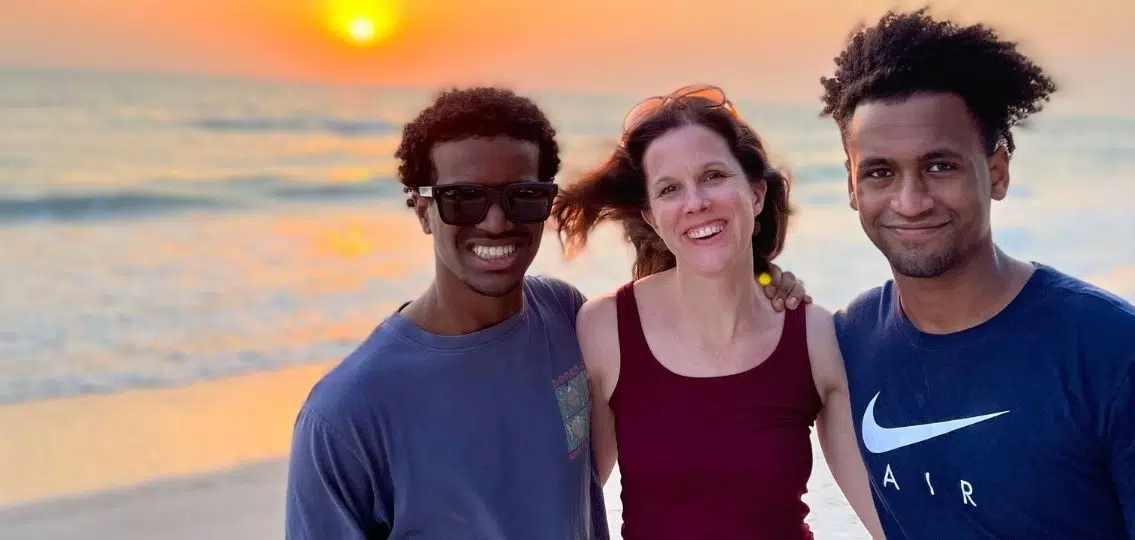When I was little, a teacher gave me cookies, and that simple act of kindness turned my day around.
I first learned about kindness by seeing it in action while I was in elementary school. The experience taught me that sometimes the biggest acts of kindness are stuffed into the tiniest of packages, made even better when that tiny package is stuffed with cream filling.
A bean-pole thin 8-year-old, I was an innocent victim trapped in the crossfire of a dodgeball game at recess. My head was still ringing from impact and tears were streaming down my face when I rushed through the door of my second-grade classroom, where I found Mrs. Lott at her desk checking papers.
She took one look at me, pulled a package from her drawer, and placed two cookies in front of me. “It looks to me like you could use an Oreo, sweetie,” was what she said, but all I heard was that she was someone who cared. My tears soon subsided. The crisp, chocolaty goodness was the comfort food I needed. Mrs. Lott’s hug sealed the memory in place.
It’s easy to focus on the negativity in social media, but pointing out simple acts of kindness shows my sons that there are opportunities for kindness everywhere.
Raising Kind Children
Fred Rogers taught us to “look for the helpers” in times of struggle, and my experience with Mrs. Lott taught me we can spot helpful people by their acts of kindness large and small. So, now whenever I spot examples of kindness, I point them out to my sons—a neighbor clearing our sidewalk when he shovels his own, a local fundraiser helping a family who had a house fire, a church friend making homemade smoothies for a friend going through difficult chemo treatments, the volunteer at the neighborhood food pantry who served over 1000 hours—I want my sons to understand how easy and valuable it is to be a helper, too.
As an essential aside, I’m careful to distinguish between kindness and playing nice to veil hostility and passive aggressiveness. Playing nice avoids confrontation, often smiling to someone’s face before berating them behind their back. That’s not behavior I want my teens to learn.
I’m teaching my teens that intentional acts of kindness are inclusive.
I don’t want my teens to limit their acts of kindness to what’s familiar, either. It’s easy to be kind to someone who shares your identity. I want them to embrace kindness that stretches across cultural and racial boundaries. I want my teens to extend kindness to those who differ from us, because of their sexual or gender identity, political party, religious preference, or some other distinguishing trait.
And while there’s a time and place for “pay it forward” random acts of kindness accompanied by cheesy hashtags, I’m not talking about that either. I’m talking about kindness with intention, not for attention.
Small acts of kindness loaded our freezer and closets as my husband and I prepared to become first-time parents to our 7- and 8-year-old adopted sons. It showed up for our family in a delivered meal after my unexpected trip to the emergency room caused by a kitchen mishap with a serrated knife.
Kindness was there when my son’s teacher gave him a small, thoughtful gift after he struggled through a dreaded standardized test. Kindness was a surprise piece of custom artwork using a favorite quote, a gift from my friend to my son in honor of his 18th birthday.
Modeling kindness has helped me raise thoughtful teens.
I know my sons have their own Mrs. Lott moments, too, and that they’re learning from them. Just this week my son surprised me with my favorite carbonated beverage. “I saw it and thought of you,” he said as he pulled it out of his backpack.
In a world that seems entertained by trolling comments and unhinged rants at the grocery store and on airplanes, I prefer to look for—and point out to my teens—the kindness all around us. I hope they continue to create more of those “I thought of you” moments. Kindness doesn’t require much effort when even the simple sharing of an Oreo cookie can change the trajectory of someone’s day.




